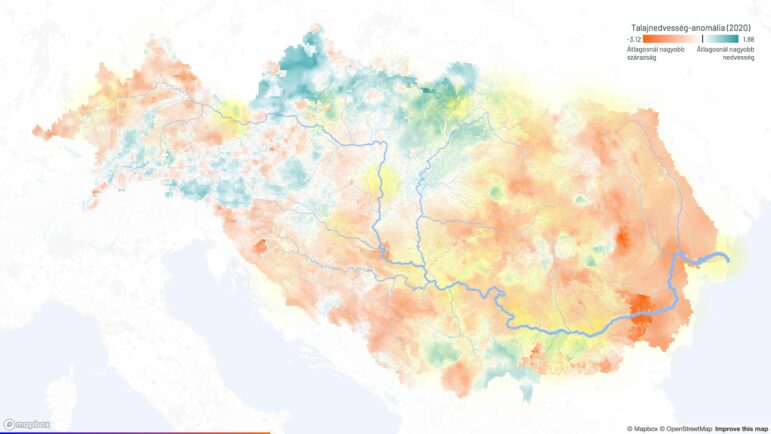Image: Screenshot, Reuters
Airplane Accidents, 2024 Elections, Europe’s Lost Snowfall, and Recycling Movies
The year 2024 is a bumper election year, with polls in the US, India, Mexico, and across Europe, and that’s just for starters. Our list of the most interesting data stories from the first two weeks of January, chosen by curation from our editors, includes a piece from Bloomberg laying out the global campaign landscape as voters around the world look ahead to the polls this year. Elsewhere, we feature a pair of data analyses on airplane accidents, two looks at climate change, both in general around the world and its impact on European snowfall, and a piece detailing the toll of the ongoing Israel-Hamas conflict in Gaza. Also this week, a story about making football stadiums more financially lucrative plus a lighthearted item about how Hollywood loves to recycle movies.
A Tragic Week in Japan
On New Year’s Day, a 7.6 magnitude earthquake in Japan left more than 200 people dead. Then, just a few days later, the country’s busiest airport, Tokyo Haneda, was the scene of an accident when a Japan Airlines airplane collided with a small coast guard jet as it prepared to take off to deliver aid to the earthquake-affected area. The crash caused a massive explosion and a fire that consumed both planes. While five of the small aircraft’s six occupants died, the 379 passengers and crew of the commercial flight were evacuated in record time, and all survived. The Japanese media organization Nikkei produced a detailed visual project to understand why the collision occurred using flight data, videos from the scene, audio from communication records, and 3D models.
More Safety Problems for Boeing
Just three days after the Japan accident, a fuselage plug for an unused emergency exit on an Alaska Airlines jet tore away mid-flight, leaving in its place a hole the size of a refrigerator and a frightening view of the night sky. The Boeing 737-MAX 9 aircraft was forced to backtrack to Portland in the US, where it safely landed with all 171 passengers and six crew on board, but with several people injured. In this Reuters report, which digs into how the door plug came loose, reporters noted that the plane had only been in service for eight weeks. They used flight data to map the movement of the plane, chart how many Boeing aircraft of the same type are in service worldwide, and illustrate where these types of unused emergency exit panels sit on the plane.
Elections Around the World
With people in countries representing half of the global economy heading to the polls this year, elections promise to be a prominent topic for data journalism teams. People will have a chance to vote in some of the world’s youngest democracies, such as Pakistan and Tunisia, and in some of the oldest, such as the US and UK, which are scheduled or expected to hold general elections later in the year. Worth watching, too, are the results in countries like Russia, where President Vladimir Putin has ensured that his reelection is “all but certain,” according to Bloomberg (with his main rival, Alexei Navalny, in prison). Bloomberg created a data-rich guide to 12 key elections to watch, including Taiwan, Mexico, and India, with details of the electoral race and what is at stake in each of them. They use information from the IMF, Transparency International, and Eurostat, among dozens of other sources.
US Presidential Primaries Begin
With the GOP presidential primary officially underway in the United States, people are paying closer attention to the campaign of former President Donald Trump, who won by a historic margin in the Iowa caucuses despite several challenges to his candidacy. To help its audience, NBC News launched a panel on everything a voter needs to know about voting laws where they live, with information on how to register, how to vote by mail, and necessary documents and deadlines, which is also available in Spanish. It is also worth checking out the special data piece about the voters who will decide the vote in swing states by The Wall Street Journal.
100 Days of Israel-Hamas War
The Israel-Hamas war has now lasted for more than 100 days, inflaming tensions across the Middle East and creating an unfolding humanitarian crisis. Following the October 7 attack by Hamas, which killed approximately 1,200 Israelis, Gaza has come under assault by the Israeli military. Al Jazeera created a longform project to detail the impact of the war: in Gaza, they report, almost 24,000 people have been killed, 60,000 injured, and 2.2 million are food insecure, using data from sources including the Palestinian Ministry of Health in Gaza, the Palestine Red Crescent Society, and the World Food Programme. (Warning: Story contains some graphic images). The media has also suffered in Gaza at an unprecedented rate: almost 100 journalists and media professionals have been killed during the period. See also a comprehensive map of the historic and cultural sites that have been destroyed, such as bookstores, museums, and mosques.
How China’s Electronics Are Key to Russia Evading Sanctions

Ranking of countries by electronics exports to Russia, comparison of 2021 and 2022. This chart shows that China’s exports to Russia shot up from 42% to nearly 59% in the first year after Russia’s full invasion of Ukraine. Image: Screenshot, Texty.org.ua
The solution to the effectiveness of sanctions against Russia lies not in Washington or Brussels, but in Beijing, according to this piece from Ukrainian data journalism agency Texty.org.ua. Modern weapons not only need steel, but electronic components such as processors and microcircuits, which are expensive to produce. That’s where Vladimir Putin counts on China’s help: While Russia is sanctioned by numerous countries due to its war against Ukraine, Beijing continues to supply components and spare parts in exchange for Russian fossil fuel resources. This data report details how limiting access to the electronics market would impact Russia’s ability to manufacture and restore military equipment. The Texty team also investigated sanctions compliance and used data to analyze the trade in semiconductors, circuit material, and radio transmission equipment.
Extreme Heat
Last year was, without a doubt, a hot year. What was already felt anecdotally by people has now been confirmed by the data from government agencies and international research groups: 2023 was the hottest year on record by a “huge margin.” And the past nine years have, one after the other, been the hottest ever. But 2023 also saw a series of extreme events, including floods, wildfires, and droughts. To illustrate the phenomenon, The Economist created a series of eight graphs related to our warming world, illustrating the daily extent of sea ice in Antarctica and the proportion of days with a global temperature above the pre-industrial average.
Europe’s Dwindling Snowfall
As the global economic elite head to Davos, Switzerland, for the annual World Economic Forum, the city in which they will arrive is blanketed with deep snow. But this is increasingly the exception to the rule, as the continent’s mountains have experienced steep drops in snowfall over the past two decades. The Financial Times looked at snowpack over time across the Pyrenees, Alps, and Carpathian ranges, and found annual snowfall decreases of up to 40% in some regions. Even more noticeable, the places that do report (very slight) snowfall increases since 2002 are mostly outside Europe’s highest peaks.
Macron’s Right Turn in Political Appointees
French President Emmanuel Macron started the new year by appointing a new prime minister: Gabriel Attal, who at 34 is the youngest PM in the country’s history. Daily Le Monde carried out an analysis of the ministers who have been in office since Macron’s election in 2017, examining their profiles, political affiliations, and backgrounds. According to the paper, some trends are clear: they see an increase in those from the right of the political spectrum and what reporters call “an increasingly obvious gap between Macron’s feminist discourse… and an increasingly masculine government, at least among the most prestigious positions.”
Europe’s New Football Stadiums
When renovation of the Santiago Bernabéu stadium is completed, the home of Spanish soccer team Real Madrid will not just be a stadium, but an entertainment complex. A retractable roof capable of closing in just 15 minutes and a pitch that can be stored underground — keeping the grass intact even during shows with the most avid fans — are among the key features. As a result, a huge increase in revenues is expected. But Real Madrid is not alone. As the Financial Times shows in this piece, many big European clubs are raising billions of dollars to renovate stadiums, aiming to create a more diversified cash flow.
BONUS PICK
‘Mean Girls’ Again, Again?
The premiere of a new film titled “Mean Girls” left many people confused, since after all, a film of that name appeared in 2004 starring Lindsay Lohan. But, this new film is, in fact, an “adaptation of an adaption,” and the latest “Mean Girls” movie is based on the 2017 Broadway musical. Of note, the same thing happened with the new musical “The Color Purple,” which is adapted from a 2005 musical play, which is itself based on an early film adaption of the 1982 Pulitzer Prize-winning novel by Alice Walker. In this piece, The Washington Post showed how adaptation trends have unfolded in recent decades and described how this back-and-forth movement between cinema and stage is not something new.
 Ana Beatriz Assam is GIJN’s Portuguese editor and a Brazilian journalist. She worked for the newspaper O Estado de São Paulo as a freelancer, mainly covering stories with data journalism. She also works for the Brazilian Association of Investigative Journalism (Abraji) as assistant coordinator of journalism courses.
Ana Beatriz Assam is GIJN’s Portuguese editor and a Brazilian journalist. She worked for the newspaper O Estado de São Paulo as a freelancer, mainly covering stories with data journalism. She also works for the Brazilian Association of Investigative Journalism (Abraji) as assistant coordinator of journalism courses.


















